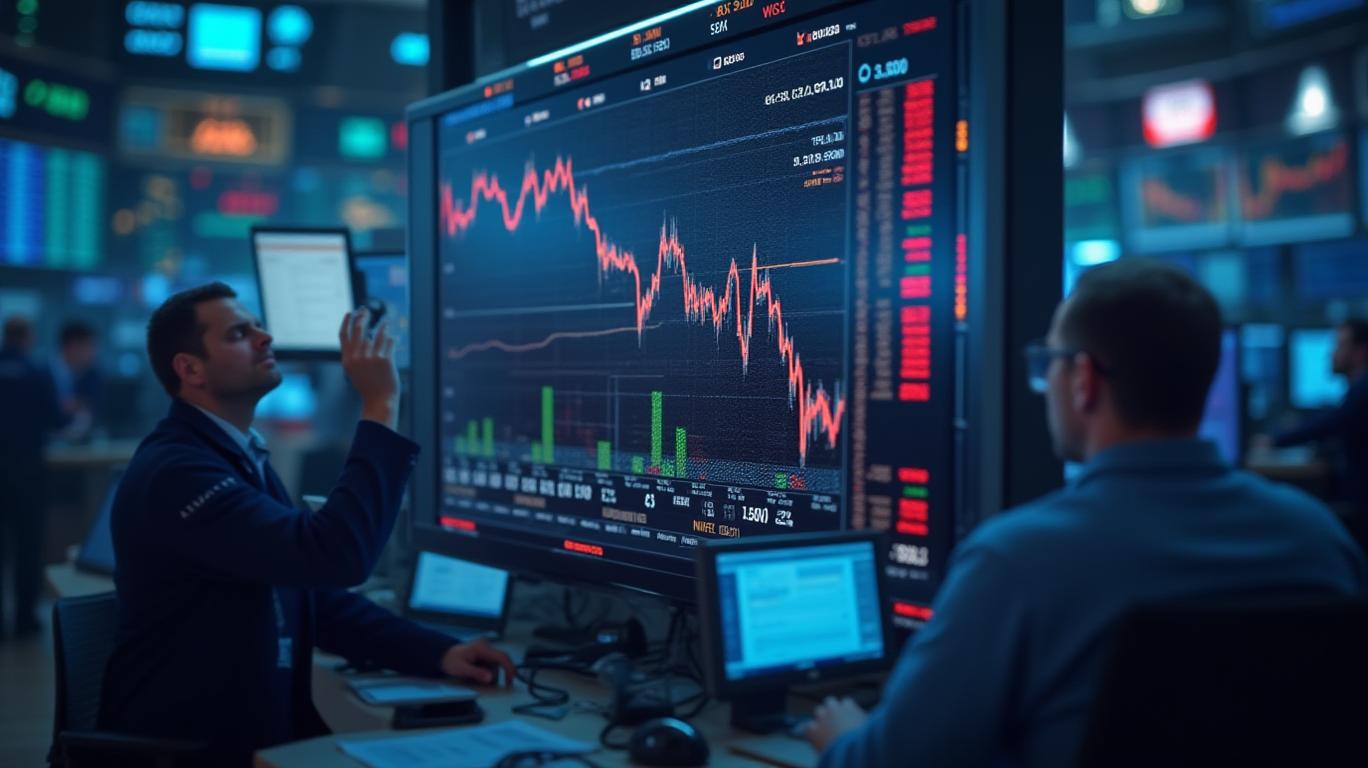Wall Street Opens Sharply Lower as Trump Tariff Threats Roil Tech Stocks
U.S. stocks fell sharply at the open Friday as investors reacted to renewed trade tensions and political rhetoric targeting Big Tech and European manufacturers. The Dow Jones Industrial Average droppe

U.S. stocks fell sharply at the open Friday as investors reacted to renewed trade tensions and political rhetoric targeting Big Tech and European manufacturers. The Dow Jones Industrial Average dropped 442 points, or 1.06%, to 41,417.1. The Nasdaq Composite slid 317.52 points, or 1.68%, to 18,608.2, while the S&P 500 declined 69.96 points, or 1.20%, to 5,772.05.
The market sell-off was triggered by a pair of combative posts from former President Donald Trump on Truth Social, proposing sweeping tariffs that rattled investor sentiment. In one post, Trump threatened a 50% tariff on all European Union goods starting June 1, citing a “Trade Deficit with the U.S. of more than $250,000,000 a year,” which he described as “totally unacceptable.” He accused the EU of leveraging "Trade Barriers, Vat Taxes, ridiculous Corporate Penalties, Non-Monetary Trade Barriers, Monetary Manipulations," among other obstacles, to hurt American competitiveness.
Separately, Trump took direct aim at apple inc., criticizing the company’s growing reliance on Indian manufacturing for iPhones intended for the U.S. market. “If that is not the case, a Tariff of at least 25% must be paid by apple to the U.S.,” he wrote.

Apple stock was under pressure following the posts, as investors weighed the implications for the tech giant’s supply chain. The comments follow Foxconn's announcement earlier this week that it will build a $1.5 billion factory in India to expand iPhone production.
Dan Ives, Managing Director at Wedbush Securities, characterized the situation as “a frustrating one for investors,” warning that the Trump-driven pressure on Apple to shift iPhone production to the U.S. would be “a fairy tale that is not feasible.” Ives noted that producing iPhones domestically could push the price point to “~$3,500,” and such a supply chain overhaul would take 5–10 years.
Despite maintaining an "Outperform" rating on Apple, Ives acknowledged the geopolitical risk Apple faces amid shifting tariff policies. He added, “With Cook being 10% politician and 90% CEO (maybe now it’s 25%/75%), we believe AAPL will continue to navigate this complex tariff situation in a game of negotiations especially heading into iPhone 17 production this Fall.”
The steep early declines across major indices underscore Wall Street’s sensitivity to escalating trade rhetoric, particularly as markets head into the final stretch of second-quarter earnings and await more clarity on inflation and interest rate policy.
Investors will closely monitor how companies adjust to the renewed risk of tariffs, with tech and multinational firms bearing the brunt of current anxieties. For now, the early trading session paints a picture of volatility fueled more by politics than fundamentals.
Disclaimer: The views in this article are from the original Creator and do not represent the views or position of Hawk Insight. The content of the article is for reference, communication and learning only, and does not constitute investment advice. If it involves copyright issues, please contact us for deletion.